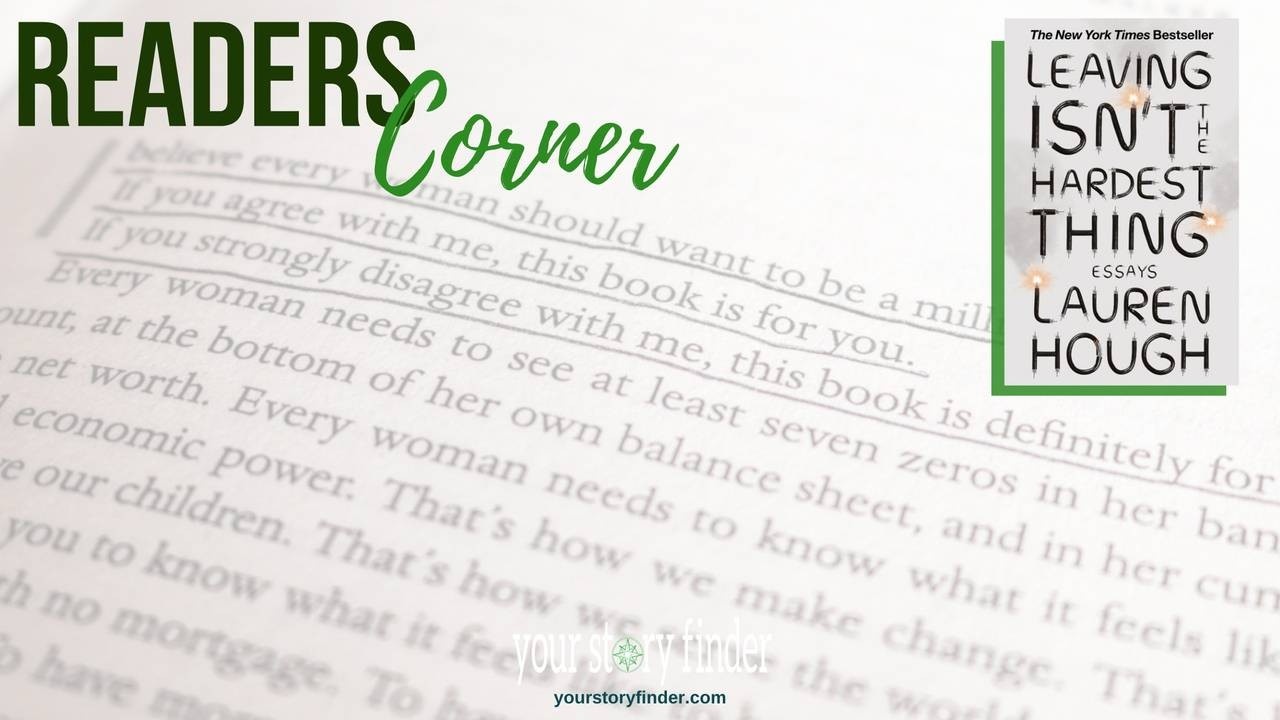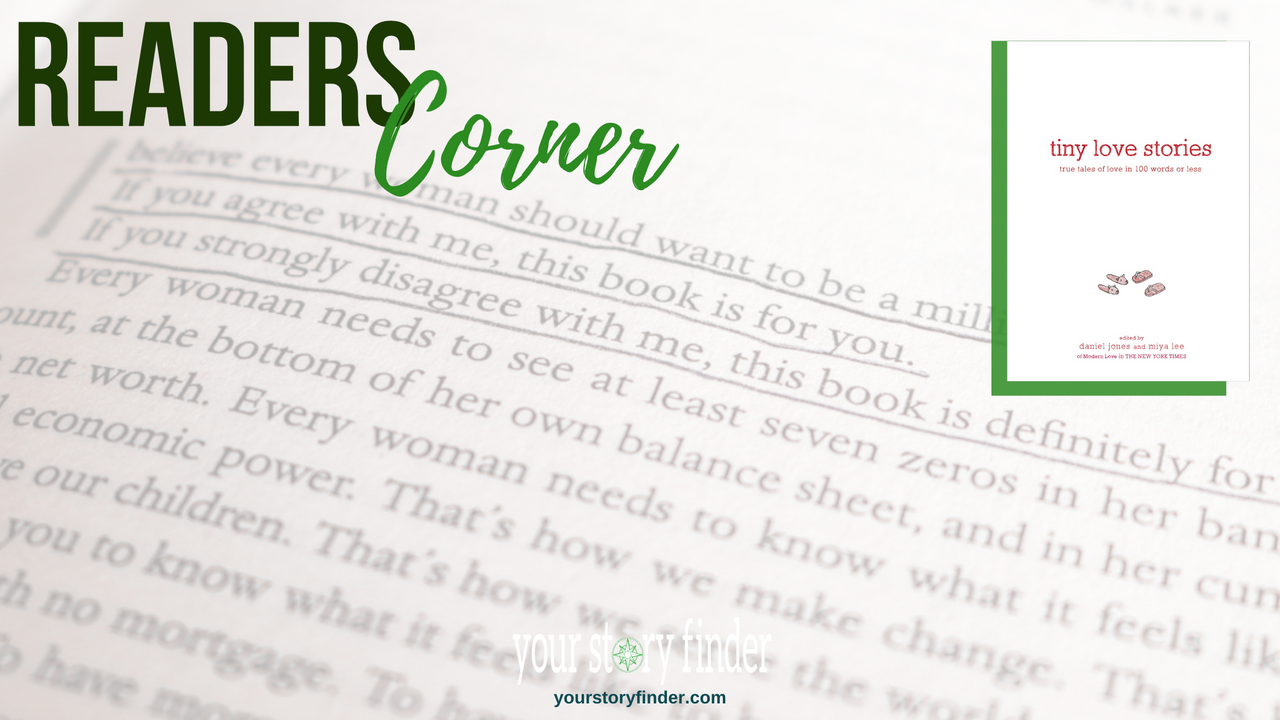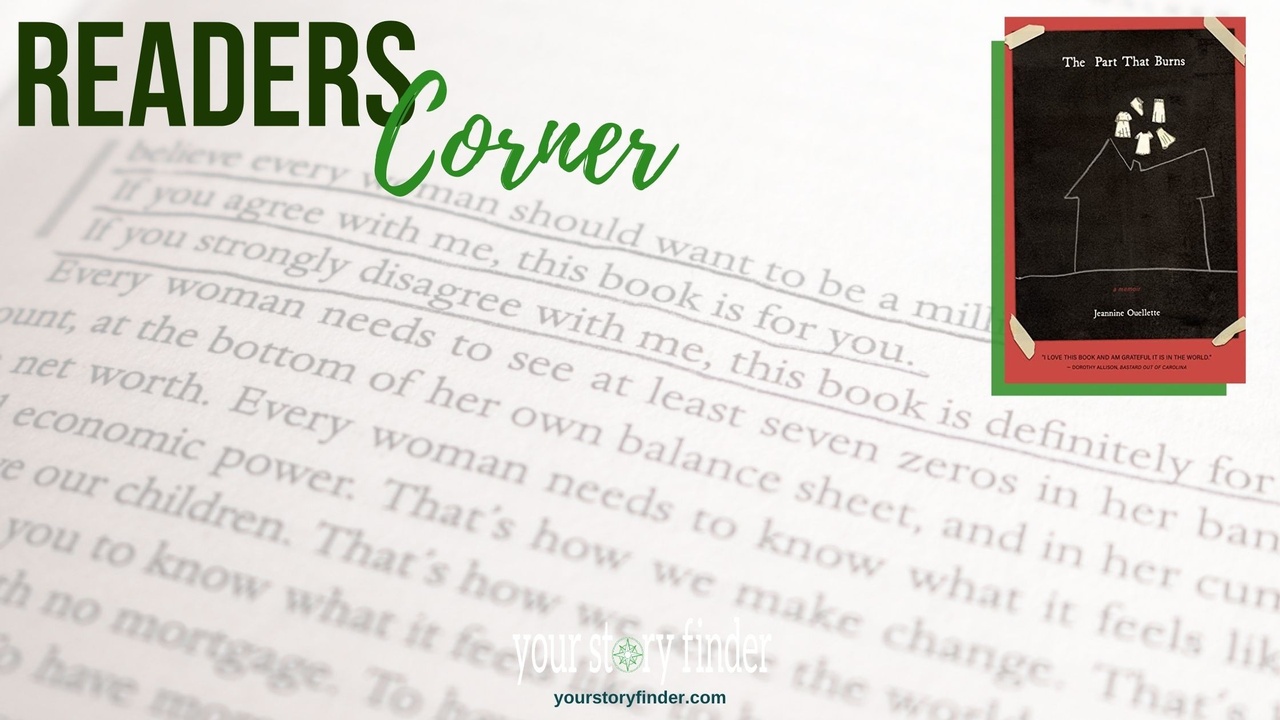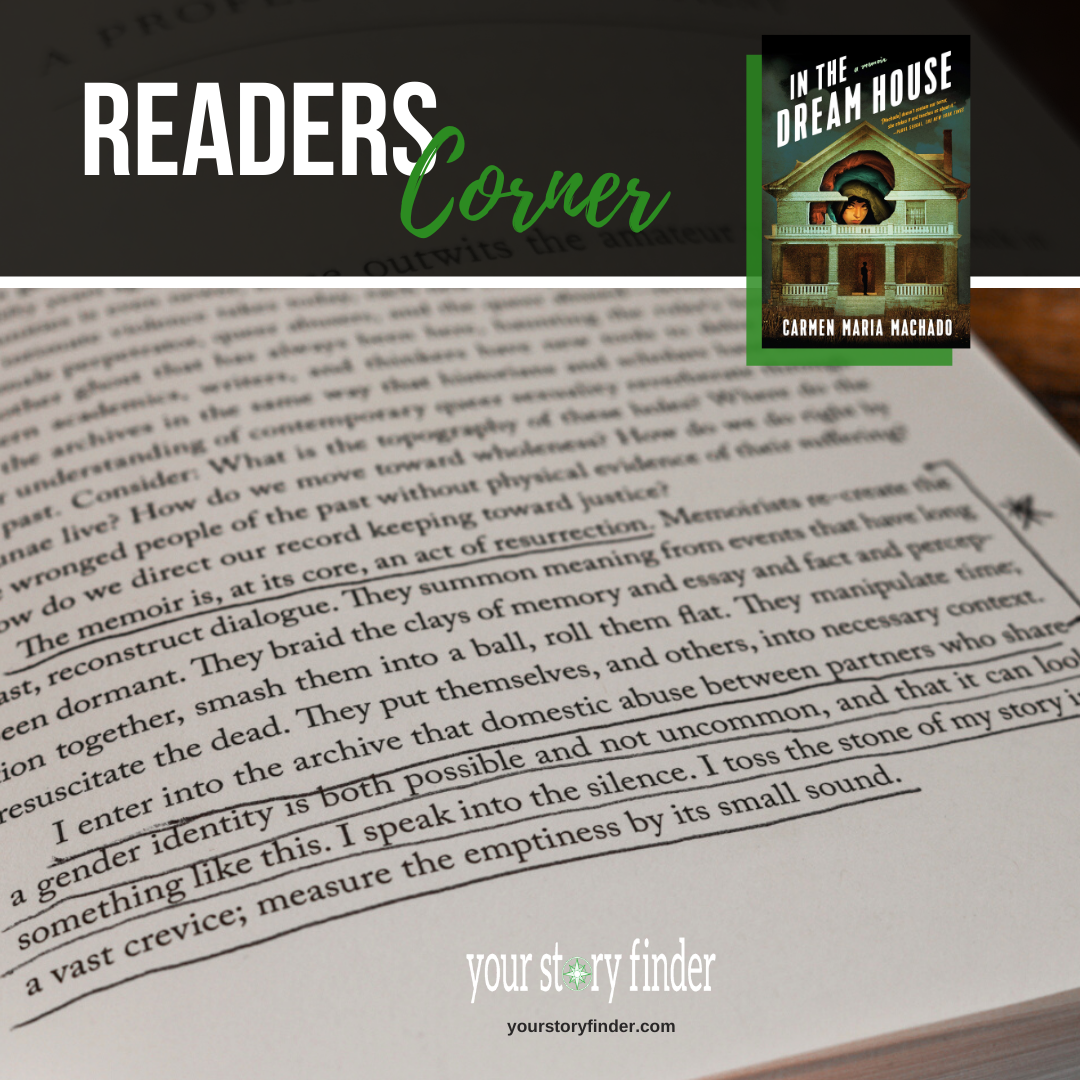Your Story Matters
Readers Corner: Leaving Isn't the Hardest Thing

Leaving Isn't the Hardest Thing: Essays by Lauren Hough

Opening lines are critical. Ideally, they grab the reader and entice them to read more. They can establish the theme of the book, something i...
Readers Corner: Tiny Love Stories

Tiny Love Stories: True Tales of Love in 100 Words or Less, edited by Daniel Jones and Miya Lee of Modern Love in The New York Times

We pick up books for many reasons: to be entertained, to forget ...
Readers Corner: The Part That Burns

The Part That Burns, A Memoir by Jeannine Ouellette

Memoir writers need to uphold their bargain with the reader to be trustworthy, to tell the truth as they remember it. See how deftly Ouellette do...
Readers Corner: In The Dream House


In the Dream House is an extraordinary, genre-breaking memoir.
“Chapters” range from multiple pages to one with a single sentence.
Fragments, slivers, shards of memory.
Leaps back and forth in ti...
Readers Corner: The War of Art

I love talking books, and I’m always happy to share the ones that move me or teach me something. I'll be highlighting books that speak to me and pulling quotes that resonate. I hope you find value in ...


